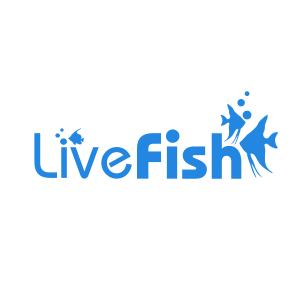Tang Orange Shoulder Surgeon MED
This particular species of tang is interesting as it starts off its life entirely yellow in colour. Then later on darkens and develops a distinctive orange spot on its shoulder which is where it gets its name from.
Orange Shoulder Tang
When fully grown these fish have varying shades of brownish-grey along the body ending with a bluish tinge towards the back. The admirable orange "shoulder" is edged with dark purple and starts just behind the eye and continues halfway down the body.
The females of the species are slightly larger than the males and although spawning has been witnessed in captivity there have been no reports of successfully rearing the young.
Orange Shoulder Tangs are generally seen as quite a passive species of tang and like the others are very active and fast swimmers that will keep you entertained for hours by darting around in open areas and searching under rocks for food.
The Orange Shoulder Tang is found in the Pacific Ocean in many regions from Hawaii all the way round to Australia and North Japan. The adults can be seen down to depths of 46 metres hunting for food in the sand and bare rock. Younger specimens stay sheltered in lagoons and shallow bays. They have been spotted alone as well as in larger schools of adults.
Tank Recommendations for the Orange Shoulder Tang
The smallest tank size for these fish is 480 litres and as mentioned before they need plenty of space to swim around so a length of 2 metres is recommended. Make sure to add plenty of live rock so that algae can grow as this will be a food source and also allow them to sleep and hide. For this reason, lighting should be kept moderate which will encourage algae growth. Any substrate is acceptable as long as some sand is included in the mix.
Suitable Tank Buddies
These guys are generally fine with most other species as long as there is plenty of space in the aquarium setup. They will even get along with smaller more peaceful fish. Make sure there isn't anything large enough to prey on the tang.
Usually Compatible
As long as there is enough space good tank buddies include Grouper, Gobies and Pufferfish. Damsels, Clownfish, Hogfish, and Goatfish will also make wonderful tank mates.
Sometime Compatible
This type of Tang can be kept with other species of Tang as long as enough space is provided for swimming and territory disputes. Keep an eye on them if keeping with Batfish, Butterflyfish and Cardinalfish. Triggerfish and Wrasse are normally okay but they can sometimes show aggression towards each other.
Rarely Compatible
Keeping Pipefish and Seahorses with them is not a good idea as they will be too scared to come out and eat by the Tang's boisterous nature. Avoid keeping more than one Orange Shoulder Tang in the same tank as they will most definitely fight. Sharks are also a bad idea, as even though this is an agile fish, they will still be preyed upon.
Feeding Your Orange Shoulder Tang
This species is an omnivore and it the wild will consume a diet of diatoms, detritus and algae and as such will need a sufficient amount of live rock with algae growth and diatom containing sand for grazing in the tank. The rest of its diet can be provided in the form of frozen formulas or flakes containing spirulina and algae. Dried nori can be clipped to the side of a rock or glass. They will also feed on mosquito larvae and frozen mysis and brine shrimp. It's best to feed them smaller amounts 3-4 times daily to maintain water quality.
| Scientific Name | Acanthurus olivaceus |
|---|---|
| Care Level | Moderate |
| Common Names | The Orange Shoulder Tang is also known as the Orange Spot Surgeonfish and the Orange Shoulder Surgeonfish. |
| Diet | Omnivore |
| Fish Family | Acanthuridae |
| Lifespan (years) | 35 |
| Max. Length (cm) | 36 |
| Min. Tank Volume (l) | 480 |
| Origin | Pacific |
| Reef Safe | Yes |
| Sociability | Semi-aggressive |
| Venomous | No |
| Water Conditions | 22.2-25.6° C (72-78° F), dKH 8-12, pH 8.1-8.4, sg 1.023-1.025 |



